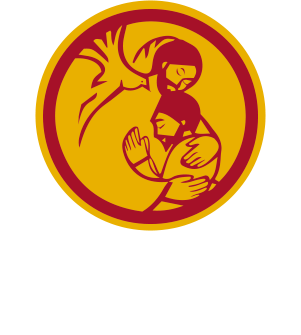Mathematics
The Mathematics coordinator, Mrs Lester, ensures that Mathematics is a central part of life at Holy Trinity and helps prepare our children to be Mathematicians by the time they leave us.
What?
At Holy Trinity, we believe that the basic skills of mathematics are vital for the life opportunities of our children. Mathematics makes a significant contribution to modern society and at Holy Trinity, we strive to provide our children with a curriculum that develops their fascination and excitement to discover mathematical concepts and broaden their knowledge and understanding of how mathematics is used beyond the classroom. Our curriculum meets the aims of the national curriculum. The national curriculum for mathematics aims to ensure that all pupils:
- become fluent in the fundamentals of mathematics, including through varied and frequent practice with increasingly complex problems over time, so that pupils develop conceptual understanding and the ability to recall and apply knowledge rapidly and accurately;
- reason mathematically by following a line of enquiry, conjecturing relationships and generalisations, and developing an argument, justification or proof using mathematical language;
- can solve problems by applying their mathematics to a variety of routine and non-routine problems with increasing sophistication, including breaking down problems into a series of simpler steps and persevering in seeking solutions.
At Holy Trinity follow the Teaching for Mastery approach. Following a mastery approach means that learning is sufficiently embedded, deep, connected and fluent. In order for learning to be sustained, built upon and connected to. We believe that ability within mathematics is not fixed. We are developing the mindsets of our children and adults alike to develop a ‘can do’ attitude to mathematics. We believe that through quality first teaching and intelligent practice, our children learning together and immediate intervention that all children have the potential to ‘go deeper’ and broaden their understanding of mathematical concepts. It is our aim for our children to think mathematically, enabling them to solve problems, reason and be confident mathematicians. We endeavour to provide opportunities for the children to experience a sense of awe and wonder as they solve a problem for the first time, discover a more sophisticated solution and make links between different areas of mathematics. Being confident, resilient, able to persevere and show determination is at the core of what we want to achieve. After all, mathematics helps us to understand and change the world.
How?
At Holy Trinity, our mathematics mastery curriculum has been developed to ensure every child can achieve excellence in mathematics. Solving problems using numerical fluency is the basis of our mathematical lessons. Mathematics Mastery places emphasis on the cumulative mastery of essential knowledge and skills in mathematics. It embeds a deeper understanding of mathematics by utilising a concrete, pictorial, abstract approach so that children understand what they are doing rather than just learning to repeat routines without grasping what is happening. We provide our children with the opportunity to explore mathematics using a range of concrete, abstract and pictorial resources. Skills for learning are a high priority, with opportunities planned where the children explain ideas and respond to feedback. Through implementation of our mastery curriculum we aim to:
- Plan for high expectations for every child;
- Teach fewer topics but at a greater depth;
- Develop number sense and place value first;
- Focus on mathematical thinking and language;
- Quality and effective resources used to support the learning of all;
- Problem solving is central to every Mathematics lesson;
- Children to calculate with confidence – understanding why the calculation works.
Since September 2019, Holy Trinity have been working with SHaW (Shropshire, Hereford and Wolverhampton) Maths Hub and following the Teaching for Mastery programme. The overviews that are used to sequence learning use the Professional Development (PD) materials provided by the NCETM (who run the Maths hubs across the United Kingdom) to support the planning of sequenced teaching points.
The Teaching for Mastery approach follows 5 Big Ideas to structure our Mathematical Teaching:
- Coherence
- Representation and Structure
- Variation
- Fluency
- Mathematical Thinking
So?
Children leave Holy Trinity with a logical and creative number fluency and with an ability to recall key number facts such as multiplication tables. We know that this is the strongest foundation we can provide our children as their use of mathematics becomes more refined. Holy Trinity children are curious, ask questions and ultimately enjoy their mathematics lessons. We want to ensure that our children move onto their next stage of learning with transferable mathematical skills, the ability to reason and solve problems, and a well-developed vocabulary. We believe that the language of mathematics is international, the subject transcends cultural boundaries and its importance is universally recognised.
Following the Teaching for Mastery methodology for our Mathematics curriculum ensures that all children access the whole curriculum. We provide our children with the number facts, precise mathematical language and the confidence to discuss the mathematics happening. Lessons are developed so that fluency and reasoning are developed together, teaching key mathematical concepts in small steps.
As the children work through the Teaching for Mastery approach they accept the ‘challenge of mathematics’ because they are encouraged by the belief that everyone can succeed through effort. Children demonstrate their growing understanding of mathematics through their reasoning and willingness to explain their mathematical strategies. The development of mathematical vocabulary and language impacts upon the children’s progress, meaning they make more meaningful steps forward. Our children recognise that physical and verbal representatives of mathematical ideas are as valuable as written ones.
Mathematics is integral to all aspects of life and with this in mind, we endeavour to ensure that children develop a healthy and enthusiastic attitude, and a deep understanding, that will stay with them for life. Our children will thrive upon conquering the challenges and puzzles that mathematics will bring and not be afraid to make mistakes.

